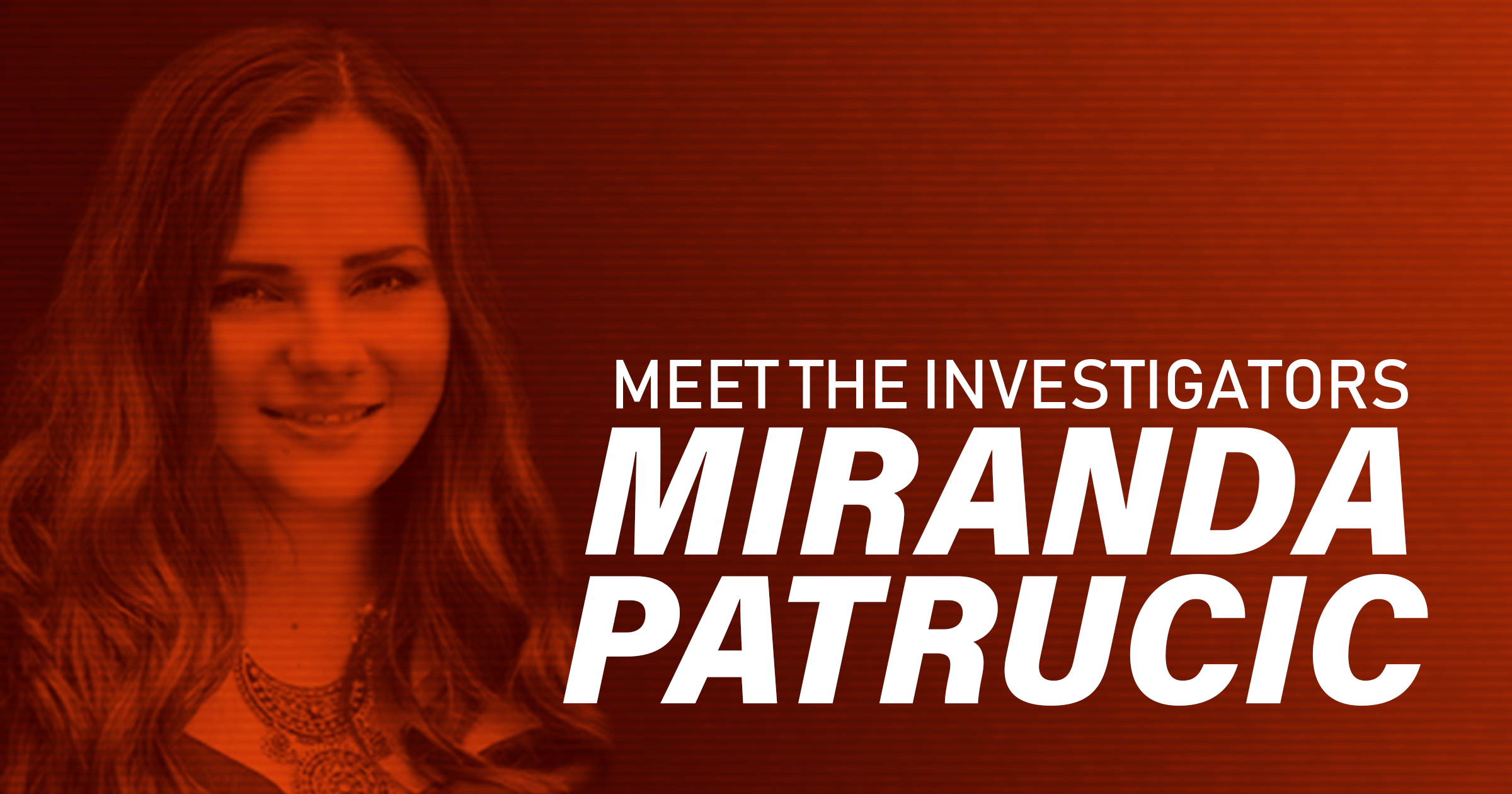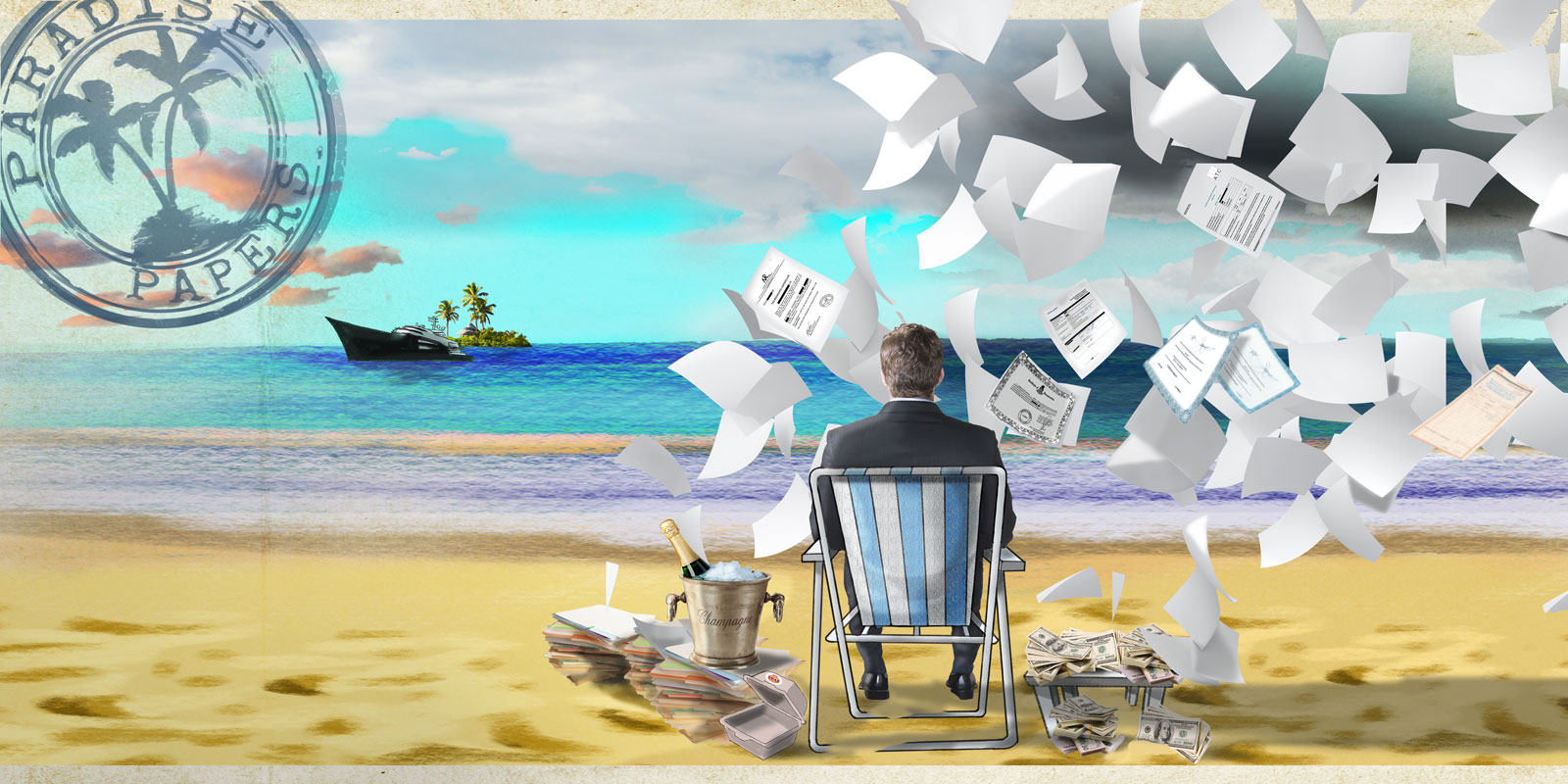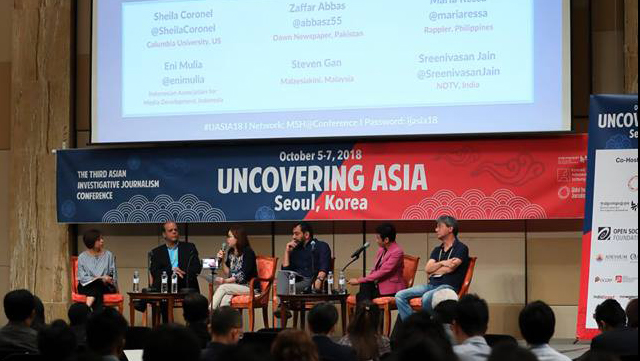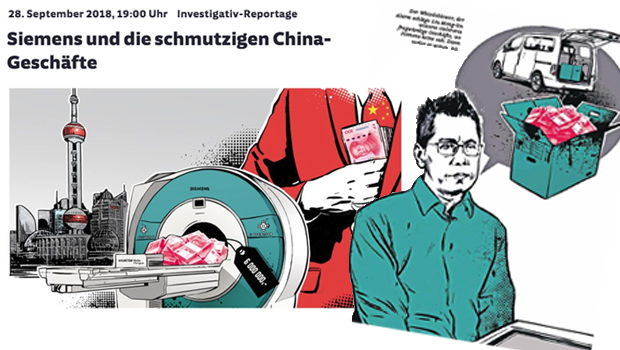ICIJ has hundreds of members across the world. Typically, these journalists are outstanding in their countries and have won many national and global awards. Our monthly series, Meet the Investigators, highlights the work of these tireless journalists.
This month, we speak to Miranda Patrucic, from Bosnia, who has worked with the Organized Crime and Corruption Reporting Project since it began in 2007. Currently, she works in central Asia and Azerbaijan, where she develops investigative reporting by training and working with young reporters. She has been recognized by numerous awards, and in 2016 won the Knight International Award for Life Achievement. Follow her on Twitter here.
You have worked on so many projects exposing corruption in some of the most repressive countries in the world. What was your favorite investigation?
It’s hard to pick an all-time favorite. Every story in each investigation has been a growing and learning experience for me and brought me forward personally. A turning point in my career was certainly the collaboration with ICIJ on the tobacco smuggling project. I did the reporting on the prime minister of Montenegro, and this brought me into the world of cross border investigations.
When I worked on Panama Papers and covered the gold mining empire of the Aliyeva family, this story turned out to have a major impact. It was fascinating to bring the complex network of offshore companies to life for the audience. Every story I worked on was a turning point and changed the way I see journalism. All of them were challenging and difficult but at the same time rewarding.
What are the challenges you face in your daily job?
With the kind of investigations we do, projects about corruption and money laundering, for example, we often expose wrongdoing by the most powerful people in the world. We need care to develop sources, handle dangerous situations, deal with threats and parry attacks by the government.
I see every story I do as a way to challenge myself to do something I have never done before. I can never say: I know how to do the next story, it’s easy, because it’s not. With the last investigation, the Paradise Papers, the storytelling, for example, was challenging. How do you make these stories interesting to read for people — not only the difficult-to-understand offshore companies — but how do you show the ways in which it affects the lives of people? There are new challenges with each new project.
What is the situation for media organizations in the countries you work in?
I do a lot of work in Central Asia, large parts of which are ruled by dictators. There are no investigative reporters in those countries, or they are jailed. Our role is not to be critics of the governments — our job is to report about what they try to hide.
If you lose journalists, you lose freedom. People then have no way to find out what’s true. We see more and more countries in which media are bought up by people close to the government. When the majority of people in a country only have access to media controlled by the government, the public doesn’t have anybody to hear the truth from. They only get propaganda.
If powerful people with government ties buy the media, they can make them [the media] say whatever they want, and cover whatever the owners want. That’s not the only problem journalists face. In many other countries, newsrooms are hemorrhaging. We need to change the laws in order to prevent people from destroying journalists financially by suing them. We need to get people to understand that journalism is public good. We are a watchdog.
With all the recent attacks and murders of journalists – do you feel more threatened?
I think we are just waking up! Of course I have dealt with threats during my career, I received the first death threats seven years ago. It’s something that can happen to anybody, and I think many of us are dealing with it in silence. We journalists are an endangered species. We are more and more vulnerable. It’s a terrifying thing. We need to speak more about it. Often the public is not aware of the difficulties we face. We need to educate people to care about us. As journalists, we actually do have power. We are not only casual viewers, we can make a difference and send a clear message about what we stand for.
If you could give young, aspiring journalists one tip, what would it be?
Never think you can’t do what it takes! We have all these threats we have do deal with, if you don’t believe you can get a document, or you can get a person to speak, you’ll never do it. Believing in yourself is the strongest message you have! When I was first starting my editor used to tell me: “Go get the miracle.” I live by those words. Every story you do has a miracle in it!
What was the biggest lesson you learned?
The lessons I’ve learned are the mistakes I have made, and that’s what teaches you you’re human. We are all humans. We are not those incredible people who are seemingly perfect to young people who want to become journalists. Our job is about constant learning. My first project with ICIJ was on tobacco smuggling, then we did work on tax evasion and money laundering, among other things, and after that we looked into illegal medicine. We have to become expert in each single domain, so don’t be afraid to become experts. Be open and ready to learn about things, including safety: Learn about physical threats, but also learn to keep your data safe with encryption, for example. You never know when to get a sensitive source, it just might happen. If you are reckless, you can endanger that person and yourself. This is a risky job. We need to be aware of the risks, not only for ourselves, but also for our sources.
What do you like about investigative reporting?
Very often back in Sarajevo, when a member of our team or I found a crucial piece of evidence that shaped a story, it would make me scream in excitement. This is the moment I live for. I have given my heart to this work. All investigative journalists should experience that moment and have fun. It is the most fun reporting job!



